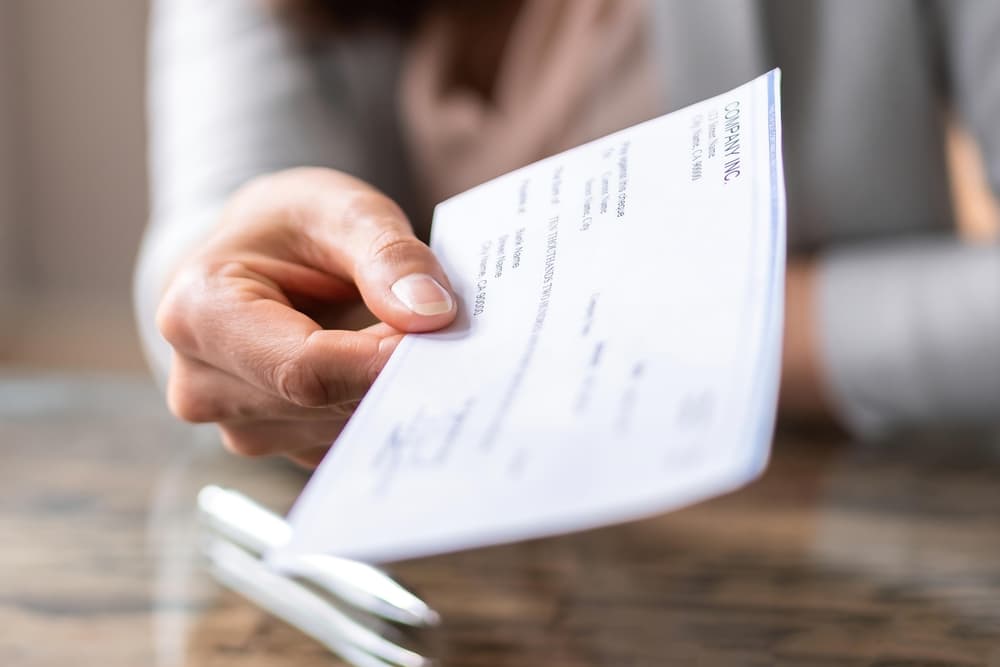After suffering serious injuries due to someone else's negligence, settling your personal injury case is a significant milestone in your recovery. Reaching a settlement means you'll soon receive the resources to handle the financial burdens resulting from your injuries and put this difficult chapter behind you.
But how long does it take to receive the money for your personal injury claim?
The answer to this question can vary depending on many factors, particularly the terms of your settlement offer. An experienced Spring Hill personal injury lawyer can expedite this process, manage any potential roadblocks or delays, and ensure you receive the financial compensation you deserve.
Understanding Personal Injury Settlements
A settlement agreement is a legal contract that resolves a dispute between parties before or after court action begins. In personal injury cases, this usually involves the responsible party or their insurer agreeing to pay the victims a specific amount of money. The settlement terms will contain other conditions, including a waiver of the plaintiff's rights to take any further legal action over the same incident.
The agreement will typically cover:
- The compensation amount: The sum of money the defendant agrees to pay the plaintiff.
- The payment structure: How the defendant will pay the money, such as in a lump sum or through installments.
- A release of liability: A clause stating that the plaintiff cannot sue the defendant again for the same incident.
- A confidentiality clause: The agreement may require that the parties do not disclose the details of the settlement publicly.
Not all settlements are financial. Some cases may involve actions such as an apology or ensuring corrective measures to prevent future harmful incidents.
By signing a settlement agreement, you're saying that you'll accept the terms in exchange for closing the case. The agreement is final when both parties consent to the terms and it's enforceable by law, meaning that any breach could lead to legal consequences.
The Settlement Agreement Process
Reaching an agreement can take a long time.
Here's how it generally unfolds:
- Initial demand and negotiation: After assessing your case and the extent of your injuries, your lawyer will send a demand letter to the defendant or their insurer detailing your damages.
- Counteroffers and discussions: The defendant's side may respond with a counteroffer or ask for additional evidence, leading to ongoing negotiations. This can extend for several months or longer, depending on the complexity of the case.
- Mediation: If negotiations stall, a neutral, third-party mediator can facilitate discussions and work toward a resolution. Mediation can speed up the process, but it's not binding unless both parties agree.
- Settlement drafting: Once both parties accept the terms, they draft a formal settlement agreement outlining the details.
- Review and sign: After carefully reviewing the agreement with an attorney, both parties sign to finalize the settlement.
- The cooling-off period: Either party may appeal or object to the settlement terms for a short period, even after signing the settlement agreement, depending on jurisdictional rules.
The time it takes to settle will depend on various factors, including the severity of the injury, the strength of the evidence establishing liability, and the willingness of each side to negotiate. The goal is to reach an agreement that compensates you adequately for your injuries while avoiding the time, costs, and unpredictability of a court trial.
How Long do You Have to Accept a Settlement Offer?
There’s no universal deadline for accepting a settlement offer, but most offers come with a limited response window, typically 15 to 30 days. If you don’t respond within that time, the offer may expire or be withdrawn by the insurance company or opposing party.
Before accepting a settlement, it’s important to:
- Understand the full extent of your injuries and future medical needs
- Calculate all damages, including lost wages, medical treatment expenses, and pain and suffering
- Review the offer with an attorney to ensure it fairly compensates you
Once you accept a settlement, you’ll likely be required to sign a release of liability, which prevents you from pursuing further claims related to the incident—even if additional costs arise later. Always take the time to carefully evaluate an offer before making a final decision.
How Long does Settlement Take?
Understanding a realistic timeline for the settlement process is crucial if you have recently settled a personal injury case or are in the midst of one. In these situations, you may face urgent financial needs due to medical bills, lost income, and other costs resulting from your injuries. It is understandable to feel anxious about receiving these funds.
What Happens After a Settlement?
Once both parties sign a settlement agreement and it is legally binding, the paperwork will go to whoever is responsible for compensating the victim's damages—usually the at-fault party's insurance company. They have time to review the agreement and approve the payout—or disbursement of funds.
The exact period insurers have to review an agreement varies by state, but it's often within 30 days. Some jurisdictions impose penalties for insurance companies that don't make timely payments, which gives them an additional incentive to release funds before the deadline.
Your personal injury attorney will receive the settlement funds.
The steps you can expect following the issuing of the check include:
- Clearing of the check: Your attorney will deposit the check in a client trust account, and most banks place holds on large deposits for a few days until the funds clear.
- Deductions: After the check clears, your attorney will deduct their legal fees and any other case-related expenses according to the terms of the contingency fee agreement you entered into as a client. Your lawyer may also pay your medical expenses and others for you. The remainder of the settlement is yours.
- Final paperwork: Before releasing the funds to you, your attorney will prepare a settlement statement explaining all the deductions and fees for your approval.
Can You Do Anything to Speed Up Your Settlement Payment?
Yes, there are a few key steps you and your attorney can take to help speed up your settlement payment:
Sign All Necessary Documents Promptly
Your settlement check can’t be issued until all paperwork—such as the settlement agreement and release forms—has been completed.
Resolve Outstanding Liens Early
If you owe money to medical providers, health insurers, or others, these liens must be resolved before funds can be disbursed. Proactively addressing them can reduce delays.
Stay in Communication with Your Attorney
Regular updates ensure there are no administrative holdups or missing documents slowing down the process.
Confirm Payment Details Are Accurate
Make sure your attorney has your correct mailing address or direct deposit information to avoid any last-minute issues.
While certain steps, like insurance processing times, are beyond your control, staying proactive and responsive can help you receive your settlement funds sooner.
Types of Settlements and Payment Timelines
Different types of settlements have unique rules determining how long you'll wait to receive payment after settling a personal injury case.
The most common arrangements are:
- Lump-sum payments: This is the most straightforward method. After the signing and processing of the release forms, the insurance company issues a single payment for the entire settlement amount. You can typically expect the money in two to six weeks.
- Structured settlements: In some cases, especially those involving large amounts, you receive periodic compensation payments. The first payment usually occurs shortly after the finalization of the agreement, and you get the remaining funds in regular installments over months or even years.
- Settlements with contingencies: Settlements may hinge on specific conditions or events, such as pending litigation or legislative changes. If that's the case, payment timelines can become unpredictable.
The circumstances surrounding each case determine how long this process takes. Your attorney can explain what to expect based on your specific situation.
Common Reasons for Delayed Personal Injury Settlement Payments
Accepting a settlement offer doesn't mean you'll immediately have a check in your hand, and there are various potential delays. While the process can sometimes take longer than you might expect, strong legal protections are in place to ensure you receive your funds.
Common reasons your settlement may take longer include:
- Medical liens: Some medical providers agree to treat personal injury victims and defer payment until their settlement comes through. You must pay these claims, or liens, before you receive the remaining funds. Calculating and repaying medical liens takes time, which could extend your timeline.
- Government defendants: If your case is against a governmental entity, there may be specific protocols it needs to follow before releasing funds, which can delay your payout.
- Insurer administrative delays: This is one of the most frustrating reasons for a delayed settlement and can be due to a backlog in processing claims at the insurance company.
- Court approval: In cases involving minors or incapacitated adults, court approval may need to approve the disbursement of the settlement amount to protect the best interests of the individual. The court's intervention could prolong the waiting period.
- Workers' compensation requirements: The timeline for workplace injury claims can vary significantly between states and may involve additional steps, such as approval from the workers' compensation board, which can add weeks or months to the process.
- Multiple at-fault parties: If your case involves multiple defendants, the settlement disbursement may take longer. The settlement agreement would need to define each party's share and payment timeline clearly.
While delays can and do happen, they're generally the exception and not the rule. A good personal injury lawyer can navigate these hurdles and ensure you receive your money as quickly as possible.
What to Do If Your Settlement Check Is Delayed?
If your settlement check is delayed, start by contacting your attorney to determine the cause—whether it's missing paperwork, unresolved liens, or insurance processing issues. Ensure all required documents, such as the release form, are signed, and verify that any medical or government liens have been addressed.
Your lawyer can request updates from the insurance company, provide a settlement statement outlining any deductions, and monitor the bank’s clearance timeline once the check is deposited.
If delays persist beyond the legally required timeframe, your attorney may take action to enforce the agreement and pursue penalties. Staying proactive and informed is key to resolving delays and receiving your compensation as soon as possible.
How an Experienced Personal Injury Lawyer Can Expedite Your Settlement Payment
The feeling of overwhelming relief that comes with signing a personal injury settlement agreement can turn to frustration if the payment process drags on for too long, leaving you struggling with the financial implications.
A skilled lawyer can significantly speed up the time between finalizing the deal and actually having the funds. They can handle each settlement stage efficiently to expedite the process and seek timely compensation for your expenses.
Handling the Paperwork and Legal Aspects
Your lawyer will dot the i's and cross the t's when handling your agreement and any subsequent documentation. Even a minor error in the paperwork can cause delays or jeopardize your payout.
The comprehensive role of your lawyer includes:
- Reviewing the settlement agreement: Your lawyer will meticulously review the final settlement documents to ensure they're accurate and in your favor, including releasing funds more quickly.
- Submitting necessary forms: They will file all documents, contracts, and paperwork promptly and correctly, preventing administrative errors that could delay your payout.
- Negotiating liens: If your healthcare provider has a lien on your settlement, an experienced lawyer can negotiate to reduce these debts, maximizing your settlement award.
Monitoring the Payment Process
Staying up to date with the status of your settlement reduces anxiety and uncertainty. A personal injury lawyer will keep tabs on your payment, ensuring no unnecessary delays during its issue, processing, and delivery.
They can also provide you with regular updates and take corrective actions if necessary. Diligent follow-up allows your lawyer to identify and address any issues immediately, which can expedite your payout significantly.
Resolving Personal Injury Settlement Delays
After filing all the necessary paperwork, the next step is ensuring the other party meets their obligations according to the timeline in the agreement. Whatever the cause, delays in receiving your settlement payout can pose a significant financial burden.

Contact an Experienced Personal Injury Attorney Today!
Your lawyer can identify whether the problem is due to red tape, a lack of clarity in the settlement terms, or other issues you might not even know about. They can take legal actions to compel payment, such as asking a judge to enforce the terms of the agreement, during an unreasonable delay.
When unavoidable delays, such as bureaucratic or legal roadblocks, occur, an experienced lawyer can determine the most effective way to navigate your situation. In most personal injury cases, a lawyer can speed up the process, as the other party typically wants to avoid further legal complications. A lawyer can expedite the payment process by preventing and resolving issues, ensuring you get your money when you need it.
Time is of the essence in personal injury cases for securing a fair settlement and receiving it. The settlement money symbolizes closure, healing, and the ability to move forward for many victims. Any delay can intensify feelings of vulnerability and powerlessness.
Like every other aspect of the legal process, the period after reaching a settlement agreement is complex. Many factors determining the timeline for getting compensation are outside your control. A skilled lawyer can avoid potential pitfalls, ensure you set realistic expectations, and reduce stress throughout the waiting period.
FAQs
Can I track the status of my settlement check?
You can track the status of your settlement check through your attorney. They can contact the insurance company to confirm when the check was issued and provide updates on processing, mailing, and bank clearance times.
Do I have to pay taxes on my personal injury settlement?
In most cases, personal injury settlements for physical injuries or sickness are not taxable. However, compensation for emotional distress, lost wages, or punitive damages may be taxed. Always consult a tax professional for specific guidance.
What fees are deducted from my settlement check?
Common fees deducted from a settlement check include attorney’s fees, court costs, medical liens, and case-related expenses. Your lawyer will provide a settlement statement showing a detailed breakdown of all deductions.
Can the government take your settlement money?
Yes, in certain situations, the government may claim part of your settlement. This usually happens if you owe child support, back taxes, or federal benefits overpayments. Medical liens from Medicare or Medicaid may also apply. An attorney can provide some clarity for you in regards to any potential deductions.
What is the usual result of a settlement agreement?
The usual result of a settlement agreement is that the injured party receives a lump-sum or structured payment, and in return, agrees to release the other party from further liability. Once signed, the agreement is legally binding and final.
Can i get my settlement check early?
You may be able to get part of your settlement money early through pre-settlement or post-settlement funding. These cash advances come with high fees or interest and should be discussed with your attorney before proceeding.
How is the money distributed when settling a claim?
Settlement funds are typically sent to your attorney’s trust account. From there, legal fees, medical bills, and liens are paid. The remaining balance is then distributed to you via check or direct deposit.
How long after a demand letter does settlement take?
Settlement can occur within a few weeks to several months after a demand letter is sent. The timeline depends on the complexity of the case, the insurance company's response time, and whether negotiations are needed.












